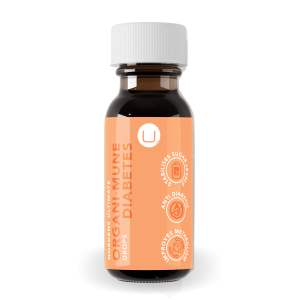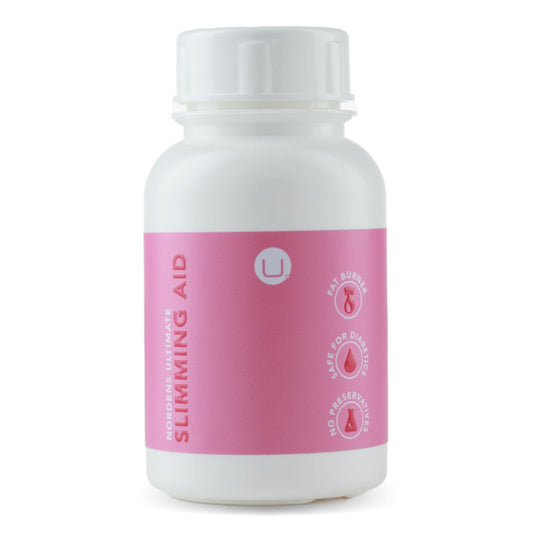“The self-healing power of the body is often overlooked because it is rarely given a chance to act in a world that expects the quick fix.”
―
Imagine a world where managing type 2 diabetes doesn't just involve managing symptoms, but potentially reversing the condition itself. Buckle up, because we're about to explore how IF (Intermittent Fasting) can be a powerful tool in your journey towards better blood sugar control and, with the right support, even remission!
Starting at the top.
Understanding Type 2 Diabetes: A Reset Button Needed
Type 2 diabetes occurs when your body becomes resistant to insulin, a hormone responsible for ushering sugar (glucose) from your bloodstream into your cells for energy. This resistance leads to chronically high blood sugar levels, which can wreak havoc on your health.
The good news? Our bodies are incredibly adaptable, and with the right tools, we can potentially hit a reset button.
Enter Intermittent Fasting: A Metabolic Makeover
It isn't about starving yourself; it's about strategically cycling between eating and fasting periods. This approach offers your body a much-needed break from the constant influx of food, allowing it to focus on vital processes like cellular repair and detoxification.
The Science is Promising
A landmark 2022 study published in the Endocrine Society's Journal of Clinical Endocrinology & Metabolism showed that after implementing an IF regimen alongside dietary changes, nearly half of the participants with type 2 diabetes achieved remission, defined by normal blood sugar levels without medication.
This research highlights the transformative potential of IF, offering a beacon of hope for those seeking to manage, and potentially reverse, their condition. You’d be crazy not to try, right?
Starting at the top.
How Can IF Help with Type 2 Diabetes?
Here's the exciting part; IF can be a game-changer for type 2 diabetes in four very beneficial ways:
- Promoting Weight Loss: Excess weight is a major contributor to insulin resistance, a hallmark of type 2 diabetes. IF's calorie restriction naturally helps shed kilos, improving insulin sensitivity and blood sugar control.
- Metabolic Shifts: IF helps regulate hormones like glucagon, which further supports healthy blood sugar levels.
- Enhancing Insulin Sensitivity: During fasting periods, your body becomes more adept at using insulin, allowing your cells to absorb glucose from the bloodstream more effectively.
- Cellular Rejuvenation and Autophagy: Fasting triggers a cellular housekeeping process called autophagy, where damaged cells are recycled and replaced. This can improve overall cellular health and potentially benefit insulin production.
Getting Started with Intermittent Fasting
There are several ways to practice IF, each with its own benefits. Here are some popular methods:
- 16/8 Method: This involves fasting for 16 hours and restricting your eating window to 8 hours each day.
- 5:2 Diet: Eat normally for 5 days and restrict your calorie intake to 500-600 calories on 2 non-consecutive days.
- Eat-Stop-Eat: Choose 24-hour periods once or twice a week where you completely abstain from food (except water and black coffee/tea).
Harnessing the Power of Plants: Adaptogenic Herbs as Allies
While IF is a powerful tool, consider incorporating adaptogenic herbs like Sutherlandia frutescens (African Bladderpod) into your routine. These natural allies help your body adapt to stress, which can be a contributing factor to diabetes.
Sutherlandia boasts an impressive compound called Pinitol, a well-known anti-diabetic agent that can further support healthy blood sugar levels. Additionally, Leonotis Leonorus (Wild Dagga) is another adaptogen showing promise in research for its potential blood sugar stabilizing effects.
Important Considerations for Diabetic Tendency
- Doctor First: Before embarking on IF, consult your doctor, especially if you're on medication. They can help you design a safe and effective plan tailored to your needs.
- Listen to Your Body: Start slow, pay attention to hunger cues, and adjust your fasting window as needed. Don't push yourself to the point of discomfort.
- Nourish Wisely: During eating windows, prioritize whole, unprocessed foods, lean protein, healthy fats, and complex carbohydrates. This ensures your body gets the nutrients it needs.
- Hydration is Key: Drink plenty of water throughout the day, especially during fasting periods, to stay hydrated and support overall health.

Taking Charge of Your Health
Reversing type 2 diabetes can feel daunting, but with IF and adaptogenic herbal formulations as your ally, you're not just managing symptoms, you're taking an active role in reclaiming your health. Small changes can lead to big results.
Here's a motivational boost:
- Focus on Progress, Not Perfection: Don't get discouraged by occasional slip-ups. View them as learning experiences and recommit to your goals.
- Celebrate Milestones: Acknowledge and celebrate your victories, no matter how small. Reaching a weight loss goal or a longer fasting window is something to be proud of!
- Find Your Tribe: Connect with others who share your journey. Online communities and support groups can provide valuable encouragement and information.
Intermittent fasting, combined with the support of adaptogenic herbs and a positive mindset, can be a powerful tool for reversing type 2 diabetes. It's an exciting path towards a healthier, more empowered you.
A Final Word: With dedication and the right tools, you can unlock your body's potential for healing and reclaim control of your well-being. So, take that first step, embrace the journey, and experience the power of intermittent fasting!
Disclaimer: This article is for informational purposes only and does not constitute professional medical or psychological advice. Please consult with a qualified healthcare professional for personalized guidance.






